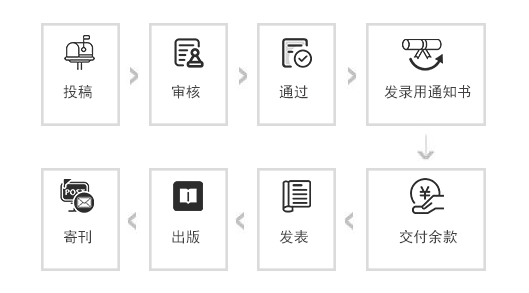Educational Psychology



- 中国知网数据库(CNKI)全文收录期刊
- 中国核心期刊(遴选)数据库收录期刊
- 中国万方数据库全文收录期刊
- 中国维普科技期刊数据库收录期刊
- 中国龙源数据库全文收录期刊
- 中国期刊网全文收录期刊



中国高校科技期刊研究会第9次会员代表大会在北京召开,中宣部出版局副局长张怀海、教育部科学技术与信息化司一级巡视员张国辉等领导出席会议并发表..
英文简介:Educational psychology is the branch of psychology concerned with the scientific study of human learning. The study of learning processes, from both cognitive and behavioral perspectives, allows researchers to understand individual differences in intelligence, cognitive development, affect, motivation, self-regulation, and self-concept, as well as their role in learning. The field of educational psychology relies heavily on quantitative methods, including testing and measurement, to enhance educational activities related to instructional design, classroom management, and assessment, which serve to facilitate learning processes in various educational settings across the lifespan.[1]Educational psychology can in part be understood through its relationship with other disciplines. It is informed primarily by psychology, bearing a relationship to that discipline analogous to the relationship between medicine and biology. It is also informed by neuroscience. Educational psychology in turn informs a wide range of specialities within educational studies, including instructional design, educational technology, curriculum development, organizational learning, special education, classroom management, and student motivation. Educational psychology both draws from and contributes to cognitive science and the learning sciences. In universities, departments of educational psychology are usually housed within faculties of education, possibly accounting for the lack of representation of educational psychology content in introductory psychology textbooks.[2]The field of educational psychology involves the study of memory, conceptual processes, and individual differences (via cognitive psychology) in conceptualizing new strategies for learning processes in humans. Educational psychology has been built upon theories of operant conditioning, functionalism, structuralism, constructivism, humanistic psychology, Gestalt psychology, and information processing.[1]Educational psychology has seen rapid growth and development as a profession in the last twenty years.[3] School psychology began with the concept of intelligence testing leading to provisions for special education students, who could not follow the regular classroom curriculum in the early part of the 20th century.[3] However, "school psychology" itself has built a fairly new profession based upon the practices and theories of several psychologists among many different fields. Educational psychologists are working side by side with psychiatrists, social workers, teachers, speech and language therapists, and counselors in attempt to understand the questions being raised when combining behavioral, cognitive, and social psychology in the classroom setting中文简介:(来自Google、百度翻译)教育心理学是研究人类学习科学的心理学分支。学习过程的研究,从认知和行为的角度,让研究人员了解个人差异的智力,认知发展,影响,动机,自我调节,自我概念,以及他们在学习中的作用。教育心理学领域在很大程度上依赖于定量方法,包括测试和测量,以加强与教学设计、教室管理和评估相关的教育活动,这些活动有助于在不同的教育环境中促进整个生命周期的学习过程教育心理学在一定程度上可以通过它与其他学科的关系来理解。它主要由心理学提供信息,与该学科的关系类似于医学和生物学之间的关系。它也由神经科学提供信息。反过来,教育心理学为教育研究提供了广泛的专业知识,包括教学设计、教育技术、课程开发、组织学习、特殊教育、课堂管理和学生动机。教育心理学既是认知科学的引导者,又是学习科学的贡献者。在大学里,教育心理学系通常设在教育学院内,这可能是由于在心理学入门教材中缺乏对教育心理学内容的表述教育心理学的领域包括研究记忆、概念过程和个体差异(通过认知心理学),以概念化人类学习过程的新策略。教育心理学是建立在操作性条件反射、功能主义、结构主义、建构主义、人本主义、格式塔心理学、信息加工等理论基础上的教育心理学作为一门专业,在过去的二十年中得到了飞速的发展。学校心理学始于智力测验的概念,并在20世纪初为特殊教育的学生提供了无法遵循常规课堂课程的规定。然而,“学校心理学”本身已经建立了一个相当新的职业,基于许多不同领域的几个心理学家的实践和理论。教育心理学家与精神病学家、社会工作者、教师、言语和语言治疗师以及咨询师并肩工作,试图理解在课堂环境中结合行为心理学、认知心理学和社会心理学所提出的问题










英文简介:Educational psychology is the branch of psychology concerned with the scientific study of human learning. The study of learning processes, from both cognitive and behavioral perspectives, allows researchers to understand individual differences in intelligence, cognitive development, affect, motivation, self-regulation, and self-concept, as well as their role in learning. The field of educational psychology relies heavily on quantitative methods, including testing and measurement, to enhance educational activities related to instructional design, classroom management, and assessment, which serve to facilitate learning processes in various educational settings across the lifespan.[1]Educational psychology can in part be understood through its relationship with other disciplines. It is informed primarily by psychology, bearing a relationship to that discipline analogous to the relationship between medicine and biology. It is also informed by neuroscience. Educational psychology in turn informs a wide range of specialities within educational studies, including instructional design, educational technology, curriculum development, organizational learning, special education, classroom management, and student motivation. Educational psychology both draws from and contributes to cognitive science and the learning sciences. In universities, departments of educational psychology are usually housed within faculties of education, possibly accounting for the lack of representation of educational psychology content in introductory psychology textbooks.[2]The field of educational psychology involves the study of memory, conceptual processes, and individual differences (via cognitive psychology) in conceptualizing new strategies for learning processes in humans. Educational psychology has been built upon theories of operant conditioning, functionalism, structuralism, constructivism, humanistic psychology, Gestalt psychology, and information processing.[1]Educational psychology has seen rapid growth and development as a profession in the last twenty years.[3] School psychology began with the concept of intelligence testing leading to provisions for special education students, who could not follow the regular classroom curriculum in the early part of the 20th century.[3] However, "school psychology" itself has built a fairly new profession based upon the practices and theories of several psychologists among many different fields. Educational psychologists are working side by side with psychiatrists, social workers, teachers, speech and language therapists, and counselors in attempt to understand the questions being raised when combining behavioral, cognitive, and social psychology in the classroom setting中文简介:(来自Google、百度翻译)教育心理学是研究人类学习科学的心理学分支。学习过程的研究,从认知和行为的角度,让研究人员了解个人差异的智力,认知发展,影响,动机,自我调节,自我概念,以及他们在学习中的作用。教育心理学领域在很大程度上依赖于定量方法,包括测试和测量,以加强与教学设计、教室管理和评估相关的教育活动,这些活动有助于在不同的教育环境中促进整个生命周期的学习过程教育心理学在一定程度上可以通过它与其他学科的关系来理解。它主要由心理学提供信息,与该学科的关系类似于医学和生物学之间的关系。它也由神经科学提供信息。反过来,教育心理学为教育研究提供了广泛的专业知识,包括教学设计、教育技术、课程开发、组织学习、特殊教育、课堂管理和学生动机。教育心理学既是认知科学的引导者,又是学习科学的贡献者。在大学里,教育心理学系通常设在教育学院内,这可能是由于在心理学入门教材中缺乏对教育心理学内容的表述教育心理学的领域包括研究记忆、概念过程和个体差异(通过认知心理学),以概念化人类学习过程的新策略。教育心理学是建立在操作性条件反射、功能主义、结构主义、建构主义、人本主义、格式塔心理学、信息加工等理论基础上的教育心理学作为一门专业,在过去的二十年中得到了飞速的发展。学校心理学始于智力测验的概念,并在20世纪初为特殊教育的学生提供了无法遵循常规课堂课程的规定。然而,“学校心理学”本身已经建立了一个相当新的职业,基于许多不同领域的几个心理学家的实践和理论。教育心理学家与精神病学家、社会工作者、教师、言语和语言治疗师以及咨询师并肩工作,试图理解在课堂环境中结合行为心理学、认知心理学和社会心理学所提出的问题
来稿要求:
论点新颖、论证严密、论据充足、文字精练。论文字数:5000字符-8000字符为宜,图表也要计算在内,不包括英文摘要关键词。
标 题:
文章标题要言简意赅,30字以内。作者署名:署真实姓名,注明作者单位、单位所在省市和邮政编码。摘 要:要用第三人称概括全文,300字以内。
关 键 词:
用3~8个关键词术语反映论文主题。专用符号:名词、术语、数字、计量单位、标点符号和数学符号等,必须符合国家标准;外文人名、地名和术语需译成中文。
图表格式:
文中插图与表格放在相应正文之后,分别按出现顺序用图1、图2或表1、表2统一编号。插图应为黑白色,其序号、标题及注释居中放在图的下方,表格的序号及标题置于表格上方,表注放在表格的下方(建议:由于篇幅限制,除核心期刊外尽量不用或少用图表)。
正文注释:
采用尾注形式,注释号①,②,③等标在相应正文右上角。
章节体例:
章节标题为:一级标题不编号,用黑体居中排,二级标题不编号,用楷体放在相应的文字段首与正文空一字格接排正文。 三级标题分别用1.2.3.顺序编号。文中接排标题用(1),(2)编号。
参考文献:
参考文献置于正文之后,近5年的不少于3条,用[1],[2]……顺序编号,如文章中有内容需要解释请用尾注形式。参考文献不全者不能进入审稿阶段。{参考文献格式如下:(1)图书:作者.书名(版本)[M].出版所在地: 出版社,出版年:(1)页码.
(2)期刊:作者.题目[J].期刊名,年,卷(期):页码.
(3)电子参考文献:作者.题目[OL].(文章的发表日期).[本文引用日期].作者简介:来稿者请附个人简介,内容包括姓名(出生年—),性别,籍贯,民族,学历,工作单位,职称,研究方向,通讯地址,联系电话及电子信箱。
一般情况下,您将在3个工作日内收到审稿结果。如文章有很强的时效性,请说明需要最晚刊发时间。
| 论文编号 | 作者姓名 | 论文题目 | 录用情况 |
|---|---|---|---|
| TG251-13579 | 韩丽炘 孟涛 温娟娟 刘晓琴 | 基于互联网的CBL+TBL教学法在病理学实验教学中的应用 | 已录用 |
| TG251-13681 | 邹隆强 杨清余 钟鸿路 李正南 陈 | 医学运动康复联合消肿止痛方治疗急性踝关节扭伤临床研究 | 已录用 |
| TG251-13794 | 林雨慧 陈霄雯 郑颖彦 朱永凯 贾 | 基于SWOT模型的儿童专科医院临床研究发展策略分析 | 已录用 |
| TG251-13762 | 郑鸿雁 | 重复经颅磁刺激治疗肝脾不调型功能性肛门直肠痛的临床研究 | 已录用 |
| TG251-13891 | 袁召1 赵会谢2 赵海深3 | 真武汤治疗阳虚水泛型慢性心力衰竭患者的临床研究 | 已录用 |
| TG251-13536 | 王杰1 张蕾蕾2 | 血脂和载脂蛋白水平与分化型甲状腺癌及其病理学特征的相关性探究 | 已录用 |
| GD24-5203 | 单一青 高鹏慧 姚瑶 | 思维导图护理对宫颈癌患者行腹腔镜术后康复的影响 | 已录用 |
| GD24-5217 | 林秀娟 梁静文 刘美仙 陈惠贤 | 加速康复外科管理模式在胸腔镜肺段切除术患者围手术期护理中的应用效果 | 已录用 |
| GD24-5213 | 杨素雯 何洁芳 陈妙霞 廖景升 | 健康行为改变整合理论对于宫颈癌晚期放疗患者依从性及自我效能的影响 | 已录用 |
| GD24-5199 | 杨月惠 王凤婷 | 个体护理计划在心脏瓣膜置换手术围手术期患者中的应用 | 已录用 |
邮箱:cnkibianjibu@163.com
QQ:
扫码联系: